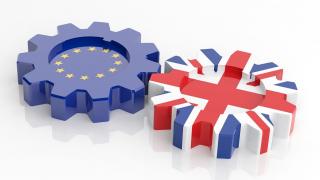
For the past five years, Brexit has been on the minds of businesses across every industry. The implications of such a major political event have been blurred by a lack of clarity surrounding trade deals; for industries such as manufacturing & engineering, where import and export is commonplace, these issues are perhaps a little more resounding.
Even now that we have officially left the EU, there is still a lot of confusion surrounding Brexit's ramifications on industry. For companies who have traditionally outsourced their subcontract manufacturing overseas, Brexit has left a lot of uncertainty surrounding the viability of such ventures going forward. Many are considering reshoring in light of Brexit, while others are finding themselves dealing with a lot of extra caveats to appease international policies.
How Has Industry Been Affected So Far?
Brexit has already had repercussions when it comes to the way that manufacturing buyers conduct business. Whereas many were previously reliant on overseas supply chains, the feasibility of such arrangements moving forward has now been called into question. There is also a lack of clarity surrounding the long-term effects that Brexit will have on the UK manufacturing industry, as many try to adjust to the new regulations and take stock of the impact on their business.
Some of the major changes to importing/exporting post-Brexit include:
- Tariffs being applied to imported goods (with the exception of countries that have a trade deal with the UK).
- Licenses required for the import/export of controlled goods.
- EORI numbers required for trading with countries within the EU.
- Customs declarations having to be completed for the import and export of goods.
As a result of these changes, many purchasers have reported a substantial increase in the amount of paperwork involved in both import and export, whilst others have put a temporary stop on international sourcing until cost implications have been clarified. There have also been reports of substantial shipping delays, which have gone on to cause bottlenecks in production.
READ: How Will Brexit Affect UK Manufacturing?
Brexit and Reshoring:
Of course, a lot of buyers are looking at the option of reshoring production in light of the delays and cost implications post-Brexit. A shorter supply chain means less potential headaches for manufacturing companies; tariff avoidance and reduced lead times may now potentially outweigh the cost savings traditionally associated with sourcing from overseas.
From a quality and delivery perspective, there have long been issues with overseas production, which has prompted many manufacturing companies to reshore within recent years. However, the developments brought about by Brexit may now remove the remaining financial incentives, meaning that we can now expect to see an unprecedented increase in reshoring activity in the near future.
While this is great news for UK subcontract manufacturing companies, it may also have a range of benefits for purchasers too. With Brexit levelling the playing field in terms of cost disparity between UK and international suppliers, other 'value-adds' start to come into their own. National outsourcing allows for a much greater degree of flexibility by comparison, accommodating ad-hoc requirements without the need for extensive planning and tracking. This is due to the shortened lead times afforded by national supply chains, which can otherwise span weeks, or even months.
National buyer-supplier relationships also allow for a much more collaborative working effort, which in turn reduces the risk of errors and production bottlenecks. Buyers are able to monitor production much more closely, meaning that expectations are maintained and quality issues are largely avoided. Mistakes can also be rectified in a much more timely fashion, preventing larger knock-on effects throughout the rest of the supply chain.
Though national supply chains may seem daunting to those who have long relied on overseas production, they can actually serve as an opportunity to relinquish a slight cost saving in return for improved quality, lead times and flexibility. Many manufacturing buyers will find that the rewards for reshoring are quickly evident and at the very least, will remove much of the confusion left in Brexit's wake.
READ: Brexit & the Skills Gap - A Perfect Storm For UK Manufacturing?
How Can Qimtek Help?
For Qimtek, the establishment of national supply chains is nothing new. We have been helping manufacturing buyers to find UK suppliers for over fifteen years, by offering a free sourcing service to the manufacturing industry.
Whether you require a UK supplier for machining, fabrication, sheet metal, profiling, casting, additive manufacturing, injection moulding or anything else, we can put you in touch with companies who have the capacity and the capabilities to help. Qimtek represents over 300 subcontract engineering companies UK wide, who specialise in a vast range of processes and are here to assist with your outsourcing needs.
As we are supplier-funded, our sourcing service is 100% free for manufacturing buyers to use. We can also accommodate sensitive projects by asking suppliers to sign a non-disclosure agreement before viewing any technical information. Submit your drawings via our Drag, Drop, Source! service by clicking the link below, or call our sourcing team on 01256 394 500 to discuss.
Click here to submit your project and start receiving quotes today.